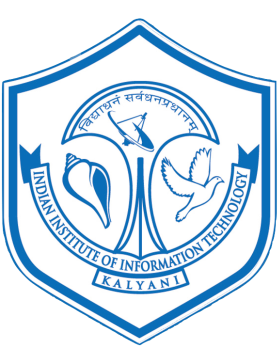Overview
A Section 8 Company is a special category of company in India, established with the primary objective of promoting charitable, social, or other not-for-profit activities. Unlike other companies, Section 8 Companies do not distribute profits to shareholders but reinvest them in achieving their objectives, such as education, arts, science, culture, religion, and social welfare.
This structure is ideal for NGOs, non-profits, and other organizations dedicated to making a positive social impact. Section 8 Companies enjoy several benefits, including tax exemptions and simplified compliance requirements, making them an attractive option for individuals or groups looking to contribute to society. At Legal Corner, we facilitate the entire registration process, ensuring that your organization meets all legal criteria and is set up for success from the start.
Eligibility
- Non-Profit Objective:
The primary eligibility criterion for registering a Section 8 Company is that it must be formed with the objective of promoting commerce, art, science, sports, education, research, social welfare, religion, charity, or protection of the environment. - No Profit Distribution:
The company must apply any profits, income, or other earnings solely towards the promotion of its objectives and cannot distribute dividends to its members. - Minimum Members:
A Section 8 Company must have a minimum of two directors if it is being registered as a private limited company and at least three directors if it is being registered as a public limited company. - Indian Residency Requirement:
At least one director must be an Indian resident. This ensures that the company has a local presence and complies with Indian regulatory requirements. - Unique Name:
The company’s name must be unique and should not resemble the name of any other registered company or LLP. Additionally, the name should reflect the non-profit nature of the organization.
Benefits
- Tax Exemptions:
Section 8 Companies are eligible for various tax exemptions under the Income Tax Act, which can significantly reduce the organization’s tax burden, allowing more resources to be directed toward achieving its objectives. - Separate Legal Identity:
As a separate legal entity, a Section 8 Company can own property, enter into contracts, and sue or be sued in its own name, ensuring continuity and credibility. - Limited Liability:
The members and directors of a Section 8 Company enjoy limited liability, meaning their personal assets are protected from the company’s liabilities. - Credibility and Recognition:
Section 8 Companies are recognized by the government and public as legitimate non-profit entities, which can enhance their credibility and attract donations, grants, and other forms of support. - Perpetual Succession:
The company enjoys perpetual succession, meaning it continues to exist even if the founders or directors change, ensuring long-term sustainability.
Procedure
- Obtain Digital Signature Certificate (DSC):
The first step is to obtain a DSC for all directors, allowing them to sign electronic documents securely and in compliance with legal standards. - Apply for Director Identification Number (DIN):
Each director must apply for a DIN, which is mandatory for their legal recognition as directors of the company. - Name Approval:
File an application to reserve a unique name for the Section 8 Company, ensuring it reflects the non-profit objectives and complies with the naming guidelines under the Companies Act, 2013. - Draft the Memorandum of Association (MOA) and Articles of Association (AOA):
Prepare the MOA and AOA, which outline the company’s objectives, governance structure, and operational guidelines, and file them with the Registrar of Companies (ROC). - File Incorporation Forms:
Submit Form INC-32 (SPICe) along with the MOA, AOA, and other necessary documents to the ROC for approval, including a detailed declaration of the company’s non-profit objectives. - Obtain License under Section 8:
Upon approval, the ROC will issue a license under Section 8, allowing the company to operate as a non-profit entity. - Obtain Certificate of Incorporation:
After the license is granted, the ROC will issue the Certificate of Incorporation, officially recognizing the Section 8 Company as a legal entity. - Apply for PAN and TAN:
Apply for a Permanent Account Number (PAN) and Tax Deduction and Collection Account Number (TAN) to comply with tax regulations.
Why Legal Corner
- Specialized Expertise:
Our team has extensive experience in registering Section 8 Companies, ensuring that your organization meets all the stringent legal requirements and is set up correctly from the start. - End-to-End Support:
We handle every aspect of the registration process, from drafting the necessary documents to obtaining approvals, allowing you to focus on your mission without worrying about the legal complexities. - Tailored Solutions:
We understand that each non-profit has unique goals and challenges. Our services are customized to align with your specific needs, ensuring that your organization is structured for long-term success. - Transparent and Affordable:
We offer clear, competitive pricing with no hidden fees, ensuring that our services are accessible to organizations of all sizes. Our transparent process keeps you informed at every step.
Long-Term Partnership:
Beyond registration, we provide ongoing support for compliance, tax filings, and other legal needs, helping your Section 8 Company thrive and make a lasting impact.












